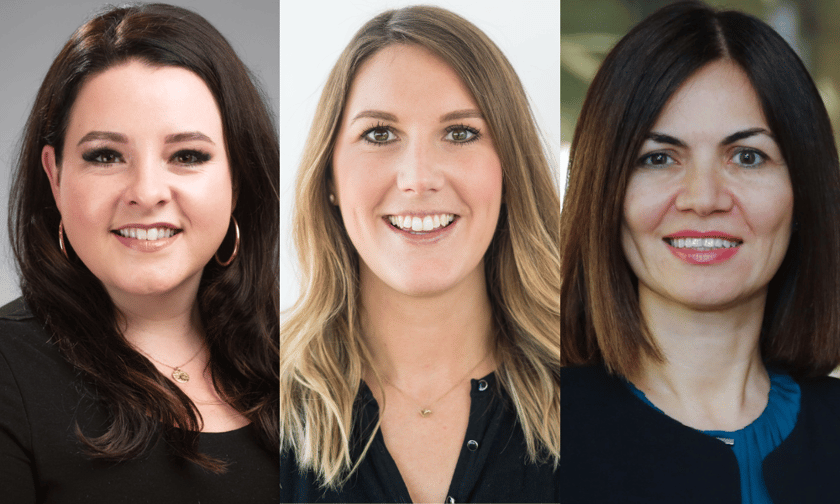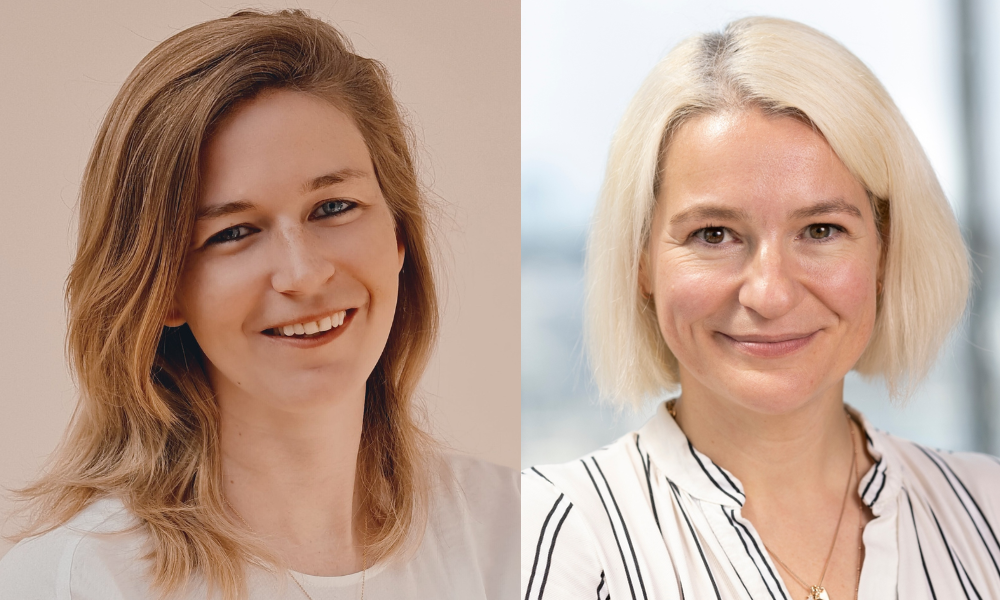

What do you wish somebody had told you before you started your career in insurance? This was one of the questions put to a panel of leaders from across the full spectrum of the insurance ecosystem who shared their insights into the market and their advice for those joining the sector today.
Looking back to when she started, Anna Beadsmoore (pictured above, left) , partner, real estate at the boutique insurance brokerage McGill and Partners, said she wished someone had emphasised the importance of the industry.
“It’s easy to downplay our importance and joke with the people who call it boring, but without insurance, companies would not be able to function,” she said. “Vital infrastructure wouldn't be erected, and the risks associated with innovation would skyrocket. Understanding this would have given me a deeper appreciation for the role we play in sustaining economic stability and progress.
“Reputation is of paramount importance in our relatively tight knit community. Consistently demonstrating fairness and integrity in dealings with clients, insurers, brokers, and colleagues is not just good practice; it's essential for long-term success and credibility.”
Beadsmoore highlighted that upon entering the industry, she felt pressure to assimilate into a male-dominated culture, believing she needed to adopt a more assertive persona. In hindsight, she said she recognises that she could have brought her true self to work every day, and still thrived.
“Embracing authenticity fosters confidence and fosters genuine connections,” she said, “ultimately contributing to a more inclusive and vibrant workplace culture.”
For Philippa Berry (pictured above, centre), cyber product leader at CFC, the power of people is also front of mind. She has been fortunate throughout her career to work with incredibly talented people, she said, and looking back, she wishes somebody had told her about the time and talent that people in the sector are willing are share with you.
She noted that the people she has worked with during her time in the market have generously imparted their knowledge to help develop her technical understanding. But what she thinks has had the biggest impact on her career has been the opportunity to observe and shadow colleagues and peers in their interactions in the market.
“Developing emotional intelligence is, for me, as important as growing your technical knowledge,” Berry said. “Insurance is a people industry, and learning how to communicate effectively is critical. This is especially important when working on a global book of business, and you have to adapt your approach to different cultures to effectively work together.
“Having the opportunity to travel and build a global network of clients and peers has been one of the greatest and unexpected benefits of working in the industry.”
Similarly to Beadsmoore and Berry, Özlem Özüner (pictured above, right), head of operations & finance e-commerce at Allianz Trade and Sophia Pilkington-Miksa (pictured directly above, left), group VP of product at ManyPets highlighted the gulf in their understanding of the market before they started their insurance careers.

“Before joining the trade credit insurance market, I did not realise it was such a global business line,” Özüner (pictured third from the right) said. “Every company trading with another company needs risk mitigation for their receivables and this was possible thanks to the supply of trade credit insurance.
“Trade credit insurance helps companies to grow and expand to new markets. I wish somebody had told me about the significant role trade credit insurance played in intermediating global trade, supporting companies to protect the receivables in their balance sheets – I might have joined the industry sooner!”
She noted that similar could be said for many other insurance segments, which highlights just how exciting and rewarding a career in our industry can be. We still have a job to promote those attributes to prospective joiners to the industry, she said, not least women.
Looking back, Pilkington-Miksa said, she wished somebody had informed her of the importance of looking “up and out” continuously – to customers, vets, competitors, and regulators – as the industry is much more dynamic than you’d expect.
“Also,” she said, “when entering a new market - don’t research from a distance and gather data points, see and touch. It’s very easy to hear a piece of advice about how a market differs and things to watch out for.
“Often you only really understand by seeing it, feeling it directly. Do all that you can to immerse yourself in the key dynamics: get a direct window into the rate filing landscape in the US, mystery shop competitors in Sweden, speak to different customer profiles, go to shelters, pet shops, vet shows, vet offices.”
Chief underwriting officer for Zurich UK, Caroline Dunn (pictured directly above, right) spotlighted how much the insurance office has changed since she joined the profession 24 years ago. It’s now a lot less stuffy, formal and hierarchical, she said, people can bring their whole selves to work much more than they could have done two decades ago.
“There’s certainly more of a balance now,” she said. “When I joined the profession, I remember thinking “what am I going to wear?” and feeling that women's work outfits were just a version of what men wore. There is definitely the ability to be more flexible now.
“At that early stage in my career, I didn’t know what an actuary was, although I probably had a lot of the skills being STEM-focused (actuarial’s loss was underwriting's gain!). I wasn’t sure what all the options were, and which skills were useful for each role. Whatever skills you have, there is typically a role in an insurance company that you will be well suited to.”
If she was doing it all again, Dunn said she would feel more confident to be myself. There’s also more representation now, she said, because looking back to when she first joined, she’s not sure she could have pointed to many women or a lot of diversity at the insurance top tables. Now there is a raft of people you can look up to that are more representative.
“I fully believe that we can serve our communities and customers better if we are as diverse as they are,” she said. “If we don’t have different viewpoints, how can we make sure we’re understanding the needs of our customers?”
